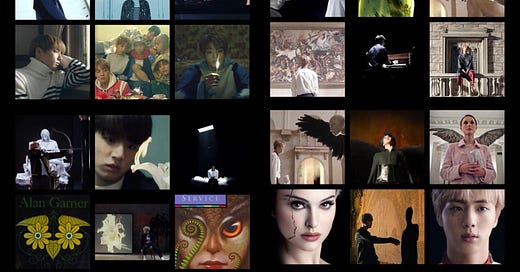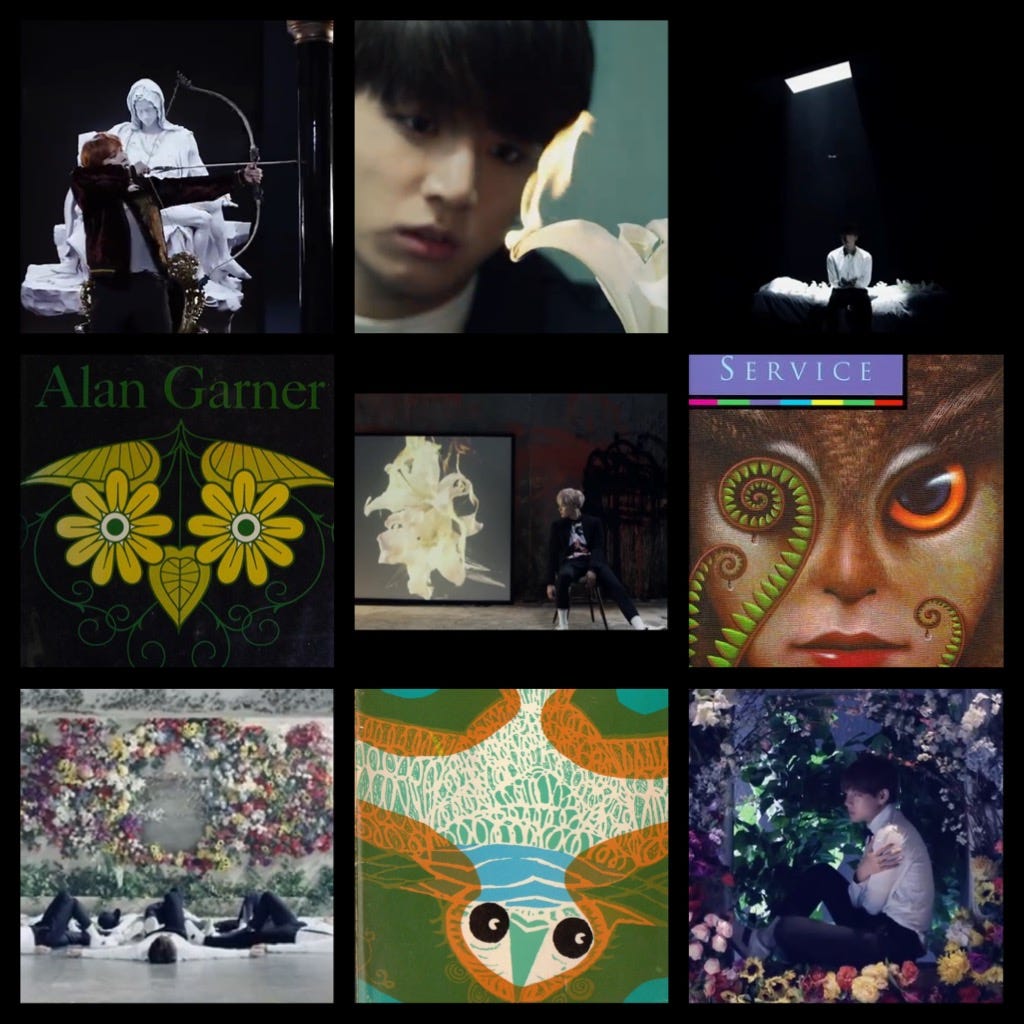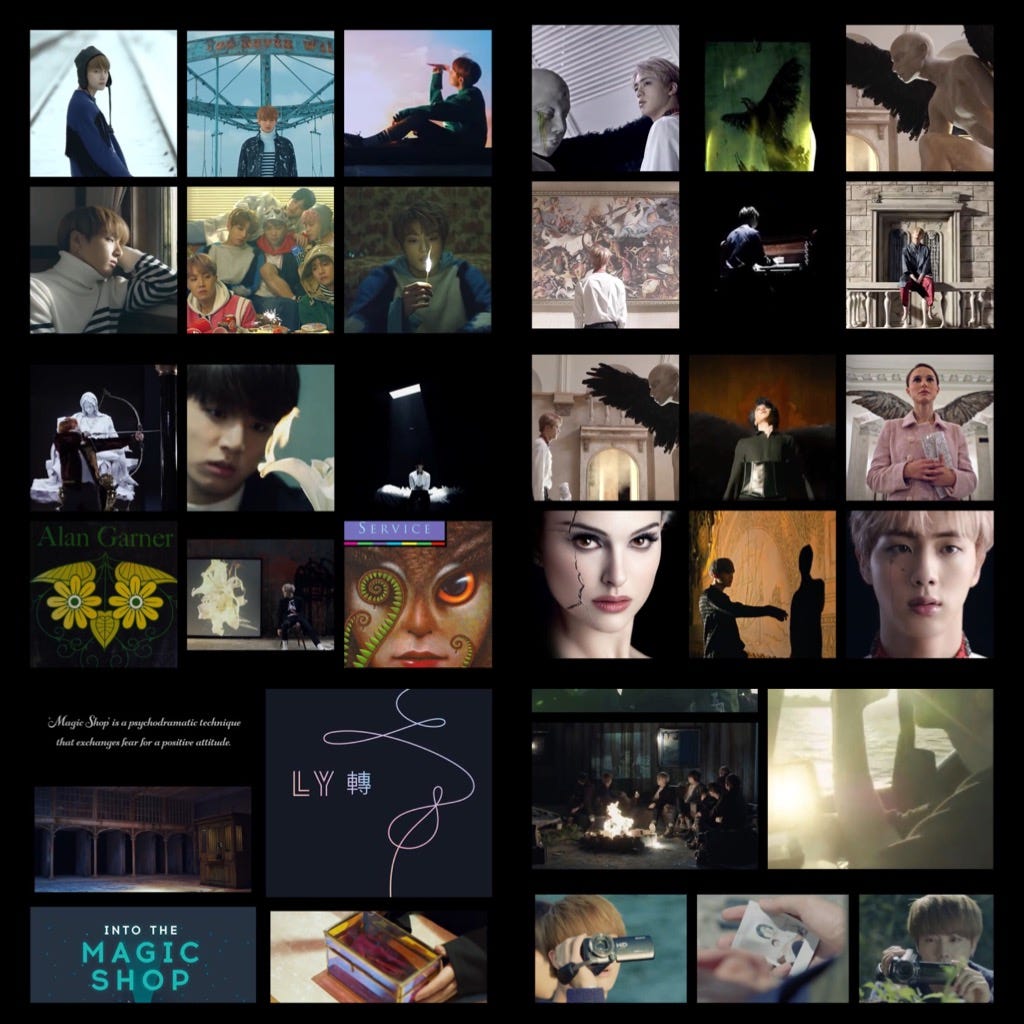The "BTStudy Guides" Episodes
A seven-part series exploring BTS’s sources of cinematic and literary inspiration!
#1: Demian
I break down the many ways BTS alludes to the characters, symbols, and themes in Demian by Herman Hesse throughout the “Wings” era music videos.
#2: Omelas
I compare and contrast the messages told through BTS’s “Spring Day” music video with “The Ones Who Walk Away from Omelas” by Ursula K. Le Guin.
#3: Black Swan
I summarize the characters and plot in the movie Black Swan, examine the film’s psychological and social commentary, and draw connections to the messages in BTS’s music and videos.
#4: Magic Shop
I explore the themes throughout both Into the Magic Shop by James R. Doty and his research on the mind-body connection. I use the song“Magic Shop” by BTS to further explain Dr. Doty’s thoughts on the power of kindness to heal and the importance of de-stigmatizing mental health.
#5: The Owl Service
I summarize both The Owl Service by Alan Garner and the Welsh myth on which it is based. By making sense of both versions of this story, the meaning of the “I Need U” chapter in BTS’s story becomes clearer.
#6: Louder Than Bombs
Louder Than Bombs is a film about grief, love, lies, and selective memory. The questions this movie provokes are also the ones provoked by the song “Louder Than Bombs” by BTS, as well as some BTS music videos. By understanding the many parallels in the ways this film and BTS’s work tell stories of life and loss, it becomes clear how BTS takes the heavy emotions communicated by movies and applies them to their own lives in powerful ways.
#7: Haruki Murakami
In Kafka on the Shore, a 15-year-old runs away from home and meets a cast of quirky characters, including Colonel Sanders, a man who talks to cats, and a woman who at one point reverts back into her younger self. In 1Q84, an assassin's life is forever linked to a ghostwriter's life, as they both run and hide from a common enemy. These stories might sound starkly different, but they have more themes in common than one would expect: a distortion of the concept of time and fears surrounding the breakdown of social norms, just to name a few. After comparing and contrasting the plots of and characters in these two stories, I compare and contrast their themes with those present in BTS's music video universe. Overall, I seek to understand what the core messages are that both BTS and Haruki Murakami are trying to say.









